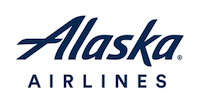
Gate-to-gate service is exactly as its name implies. The passenger is assisted off the flight and escorted through the airport to the new gate by a member of the airline’s staff or someone the airline has contracted with to provide the service. However, the family’s lawsuit alleged that Ms. Kekona was only escorted off the flight and was left to fend for herself through the airport to make her connection. She was simply taken from the aircraft to the jetway and left in her wheelchair at the original gate.
Ms. Kekona unsuccessfully attempted to make her way to the next gate on her own and her eventual fall down the escalator was captured by airport security cameras. She was rushed to an area hospital, released, and eventually made her way to Spokane. After a leg wound she’d sustained in the incident became worrisome, her family then took her to a Spokane-area hospital. She was dead two weeks later.
Alaska Airlines alleged that Kekona “declined ongoing assistance in the terminal and decided to proceed on her own to her connecting flight.” The reservation for services put in place by the family made no mention of her having any sort of “cognitive, visual, or auditory impairments.” Based on that information, Alaska Airlines had initially sought to have the suit dismissed. That request was denied, however, and the trial continued.
In reaching the $3.19 million verdict, the jury found Alaska Airlines had violated the Air Carrier Access Act by not seeing the request to help Ms. Kekona to her connecting flight through to completion. The jury divided responsibility for the incident by finding Kekona 10 percent liable for her own death, while Alaska Airlines was left with 90 percent of the remaining responsibility.
Alaska Airlines is evaluating its options in light of the award and has signaled that it may try to deflect responsibility away from itself and onto a third party. “There is no more important responsibility than the safety and wellbeing of our guests,” the airline said in a statement, “whether they’re in our care or the care of a vendor.”
